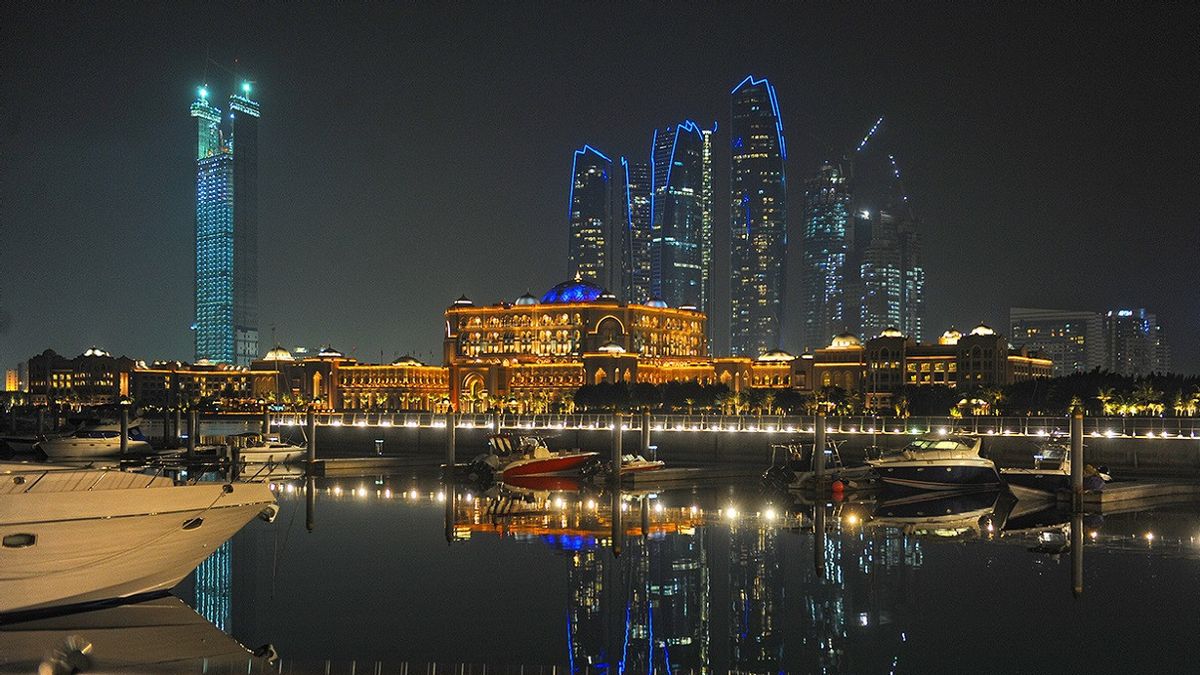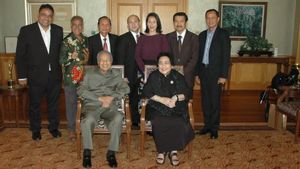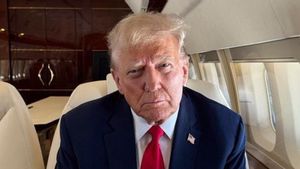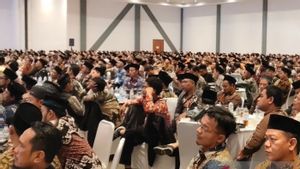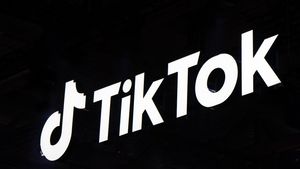JAKARTA - Crown Prince of Abu Dhabi and Deputy Supreme Commander of the Armed Forces Sheikh Mohamed bin Zayed said the United Arab Emirates (UAE) had overcome the COVID-19 crisis, asking people to return to normal activities.
On the sidelines of the offline Wasr Al Bahr Majlis, Sheikh Mohamed said the country had learned an important lesson from its fight against the coronavirus.
Sheikh Mohamed said the UAE was in good shape, although he warned some adjustments had to be made in the post-COVID-19 era.
"I am blessed to see your good face today. I announce to you that everything is good health conditions in the UAE are good. I want to emphasize to all of you that our lives must return to normal," Sheikh Mohamed said in a video recording of the meeting, which released by state news agency Wam, citing The National News 7 October.
"Maybe our habits will change a little bit. We will adjust and make some changes in our habits, like our work, our children's education or our personal life, like going out, seeing people and being seen,"
"We should praise and give thanks to God, whatever our condition. We thank God that we have overcome this crisis with our welfare, dignity, safety, health, and experiences that have cost us but from which we have learned a lot. All praise for Allah and I am blessed to see you," he said.

Sheikh Mohamed praised the UAE's response to the COVID-19 pandemic, pointing to the encouraging decline in infection rates in recent months.
He offered his condolences to all those who lost loved ones during the pandemic.
"2020 was difficult and has witnessed great challenges, but the UAE, thank God, was able to be one of the first countries to come out of the crisis at a time when several countries are facing great difficulties," he said.
"The number of cases in the country has decreased to less than 500 (per day). This is promising and shows that Covid-19 is under control and less dangerous than before," continued Sheikh Mohamed.
The assembly was attended by a number of dignitaries, including Sheikh Tahnoun bin Mohamed, Representative of the Ruler in Al Ain; Sheikh Hamdan bin Zayed, Representative of the Ruler in Al Dhafra; and Sheikh Hazza bin Zayed, deputy chairman of the Abu Dhabi Executive Council.
The UAE recorded its first COVID-19 case in January last year, involving a Chinese family who was on holiday in the Emirates, as the virus spread rapidly around the world.
The daily number of cases hit nearly 4,000 in February this year. However, stringent safety measures introduced by the authorities, such as physical distancing and rules on face masks, coupled with extensive testing and vaccinations, helped turn things around.
The infection rate has fallen significantly since June, hitting an 18-month low of 156 new cases on Wednesday. More than 85.5 million PCR tests have been performed, and more than 20.2 million doses of the coronavirus vaccine have been given to the public to date.
In the early months of the pandemic, offices were closed and classrooms emptied as employees and students worked and studied from home to curb the spread of the virus. Since then, the United Arab Emirates has continued to recover and is gradually reopening to boost business and restore a sense of normalcy.
Workers have returned to the office in large numbers and most students have resumed face-to-face lessons, as part of a carefully considered reopening strategy.
On Sunday, Dubai's private schools ended distance learning, except for schools with exceptions.

Meanwhile, high vaccination rates among students and teaching staff boosted the confidence of those returning to on-site lessons. This move won praise from many parents and school leaders.
Abu Dhabi on Tuesday announced plans to allow schools to relax COVID-19 safety measures based on their vaccination rates.
The Blue School Initiative will be introduced in the second semester of the academic year.
This will allow schools with higher COVID-19 vaccination rates to gradually reduce social distancing, relax mask wearing protocols, increase classroom and school transportation capacity, and resume extracurricular activities and field trips.
A color coded level system will be set up. This will determine the extent to which safety procedures can be lifted, based on the percentage of the school population immunized.
To note, the requirement to be PCR tested to enter Abu Dhabi from other emirates was lifted in September.
In addition, the UAE has again hosted major events, in line with security measures. Expo 2020 Dubai, which was delayed for a year due to the pandemic, has enjoyed a successful first week, attracting tens of thousands of visitors from around the world to admire the various attractions.
Next month, the Dubai Airshow will take place for the first time since 2019, highlighting the encouraging recovery of the travel industry hit hard by the pandemic.
The English, Chinese, Japanese, Arabic, and French versions are automatically generated by the AI. So there may still be inaccuracies in translating, please always see Indonesian as our main language. (system supported by DigitalSiber.id)
